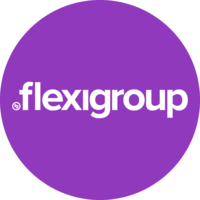(Switzer Report, Chris Tan)
What is the company?
FlexiGroup Limited (FXL).
How long have you held the stock?
We have held the stock since inception in August 2017.
What do you like about it?
FlexiGroup is a finance business that operates primarily in the consumer space. Consumer finance is not a homogeneous market and consumers borrow for a range of different products, for different tenors and with varying risk characteristics. FlexiGroup’s diversified operations lend across this spectrum, via point-of-sale finance, credit cards, instalment loans and leases. It also participates in SME and commercial lending but to a lesser degree.
Since listing in 2006, FlexiGroup has been profitable every year (including the GFC where FXL actually increased its profits), attesting to the strength of the business.
As a lender, FlexiGroup’s key drivers are:
1. Growth in the size of the receivables book.
2. The efficient funding of those receivables.
3. The minimisation of loan losses.
In the last couple of years, there has been a slowdown in the growth of the receivables book, partly as a result of competition from so-called ‘fintechs’, but largely in our view due to a lack of focus. This has led some to conclude that FlexiGroup will be disrupted and that its profitability will suffer, as it struggles to ‘feed’ its receivables book.
We think that this is short-term and simplistic thinking that ignores FlexiGroup’s long history of innovation and under-appreciates its funding infrastructure and credit scoring expertise. We acknowledge that FlexiGroup’s sales culture had suffered under previous management, but we feel that with the arrival of current CEO Symon Brewis-Weston, there has been a turnaround in focus and culture. FlexiGroup has also had to go through a period of restructuring whereby it exited unprofitable lines of business and redeveloped core systems to bring them up to speed with current technology. However, we believe that the hard work has mostly been done and that the group is poised to resume growth in transaction volumes, receivables and, therefore, profitability.
How is it better than its competitors?
Unlike its fintech competitors, FlexiGroup actually makes money. The fintech competitors are showing impressive loan growths (off a much smaller base, it must be said) but that has yet to translate into profits, with revenues eaten up by customer-acquisition costs and high funding costs. FlexiGroup’s funding infrastructure is a real competitive advantage, allowing it to fund its receivables book at much lower interest rates than those competitors. With a rejuvenated sales focus, simplified core operating systems and better IT infrastructure, we believe that FlexiGroup is poised to resume growth in profits.
What do you like about its management?
Symon Brewis-Weston was appointed CEO in early 2016 and has overseen a period of necessary change to re-focus the group after a period in which it appeared to lose its way. Since that time, he has completely changed the senior management of FlexiGroup, exited unprofitable businesses, initiated a programme of internal initiatives to simplify operating processes and rejuvenated the group’s sales focus. We probably underestimated the size of the job required but, importantly, it was something that was within FlexiGroup’s capacity to fix. In our view, most of the hard work has been done and Symon and his team deserve credit for the way they have gone about the task.
What is your target price?
We don’t set target prices, preferring instead to continuously evaluate what the current share price is implying in terms of an after-tax cash earnings yield (ATCEY) available to shareholders. At the current price, we see FlexiGroup offering an ATCEY of ~10%, too cheap in our view.
At what point would you sell it?
All things being equal, from a valuation perspective, if it reached a price where our expected ATCEY was less than 6% we would be unlikely to hold it. Other than that, any sign that our investment thesis was wrong – for example, if the competitive landscape changed dramatically or if the company failed to execute its strategy – would lead us to re-assess our position. It’s important to note that this is a dynamic process – we continuously monitor all positions in our portfolio to see if our investment thesis still hold.
How much has it added to your overall portfolio over the last 12 months?
Including dividends, FlexiGroup has appreciated 33% since being added to our portfolio on inception in August 2017.
Where do you see value?
A proven consumer lending business undervalued by the market that shows:
• Improving top-line growth;
• Industry-leading funding infrastructure;
• Strong credit risk management, proven through several business cycles.
Important: This content has been prepared without taking account of the objectives, financial situation or needs of any particular individual. It does not constitute formal advice. Consider the appropriateness of the information in regard to your circumstances.


